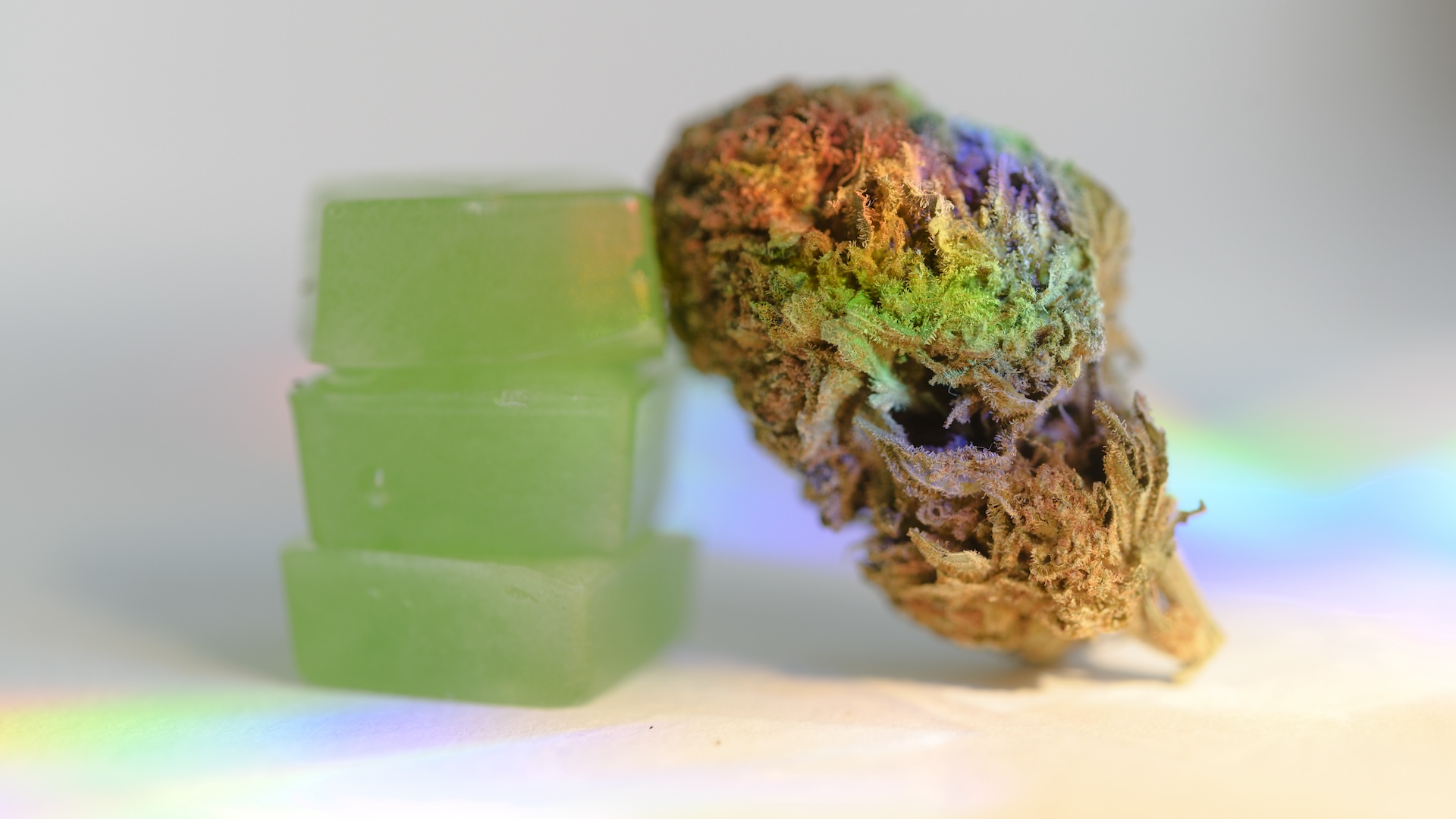Weed may be bad for your heart, whether you smoke or consume edibles
Smoking cannabis and consuming THC edibles are both linked to impaired blood vessel dilation, possibly through separate mechanisms, a study finds.

Because eating a cannabis-infused brownie or gummy does not involve inhaling smoke, it may be tempting to think of edibles as a relatively harmless high. However, new research suggests that similar to smoking cannabis, consuming edibles containing the compound tetrahydrocannabinol (THC) may worsen cardiovascular health over time.
The study found that "chronic smokers of marijuana have poorly functioning blood vessels similar to chronic smokers of tobacco," said Matt Springer, a cardiovascular researcher at the University of California, San Francisco (UCSF) whose lab led the new study. "THC edibles also appear to be associated with this problem."
Published May 28 in the journal JAMA Cardiology, these findings may counter commonly held beliefs about the health impacts of weed.
"A lot of people consider marijuana to be totally safe for the cardiovascular system," said Dr. Robert Kloner, director of cardiovascular research at Huntington Medical Research Institutes in Pasadena, California, who was not involved in the new study.
Although scientists have not reached total consensus about the health effects of cannabis, Kloner added, the UCSF study adds to the mounting evidence that the drug contributes to the risk of cardiovascular events, such as heart attacks and strokes. This is especially true for people with coronary artery disease or with other risk factors, such as a high blood pressure or diabetes, that may lead to arterial narrowing.
Cannabis and heart health
To better understand how cannabis affects cardiovascular health, Springer and his colleagues recruited 55 adult participants who fell into three groups: cannabis smokers, THC edible users and cannabis nonusers. To isolate the effects of habitual cannabis smoking or edible use, the study focused on cannabis users who reported using the drug at least three times a week, exclusively through their preferred method.
The study's lead author Dr. Leila Mohammadi, a physician-scientist at UCSF, noted that their study's strict recruitment criteria resulted in a small sample size, which could somewhat limit the findings. However, it also enabled them to rule out other factors that could affect people's blood vessels, such as tobacco use or underlying health conditions.
Get the world’s most fascinating discoveries delivered straight to your inbox.
To gauge each participant's vascular function, the authors temporarily blocked blood flow to the brachial artery — located in the upper arm — with an inflatable forearm cuff. They used ultrasound imaging to measure the artery's diameter before and after releasing this pressure. This measure is reflected as the percentage of diameter change from the baseline measurement.
Springer said this test offers a "window into the future" because if blood vessels cannot dilate properly in response to increased blood flow, that's linked to a higher risk of poor cardiovascular disease outcomes, such as heart attack.
Among the participants who did not consume cannabis, the researchers measured an average vessel dilation of 10.4%. By comparison, cannabis smokers and edible users had an average dilation of 6.0% and 4.6%, respectively. This decrease in dilation is similar to what the researchers observed in an earlier study of chronic tobacco smokers.
The more cannabis people used — as defined by the number of smoking sessions or milligrams of THC consumed via edibles per week — the more dramatic their impairment in dilation was.
To uncover clues as to why cannabis might cause this change in function, the researchers ran a laboratory study to see how the participants' blood samples affected endothelial cells. These cells line blood vessels and release compounds, such as nitric oxide, that spur vascular dilation.
This vessel-widening process can be triggered by a substance called vascular endothelial growth factor (VEGF). But when the researchers exposed endothelial cells in lab dishes to blood samples from cannabis smokers, they found that the blood hampered VEGF-stimulated nitric oxide production in the cells.
However, blood from edible consumers and cannabis nonusers had no effect on the cells' nitric oxide release. That suggests that cannabis smoke and ingested THC affect the cardiovascular system via separate mechanisms. That idea is in line with a prior study from the same team, which found that secondhand cannabis smoke that was stripped of THC still affected the blood vessels of rats that breathed it in.
The new study revealed only an association between cannabis use and vascular function, not definitive proof of how the drug affects blood vessels, Springer acknowledged. Meanwhile, one of his collaborators previously reported that cannabis appears to harden blood vessel walls but does not affect vascular dilation, whereas the current paper reports the opposite findings. So there's more research to be done.
Springer added that because they only recruited habitual users of the drug, people who consume cannabis less frequently may not be affected the same way.
Cannabis is becoming available to a growing number of consumers thanks to efforts to legalize the drug at the state level. However, research into its health effects has not kept up, Kloner said. Because the drug is still illegal at the federal level, cannabis studies remain constrained by strict regulation, making the drug more difficult to study, he noted.
This article is for informational purposes only and is not meant to offer medical advice.

Lauren Schneider is a health and science journalist currently pursuing a master's degree from the Science, Health and Environmental Reporting Program at New York University. She earned a bachelor's degree in neuroscience at The University of Texas at Austin prior to becoming a writer. In her spare time, you can find Lauren watching movies, swimming, editing Wikipedia, or spending time with Lucy, her impossibly cute black cat.
You must confirm your public display name before commenting
Please logout and then login again, you will then be prompted to enter your display name.
 Live Science Plus
Live Science Plus





